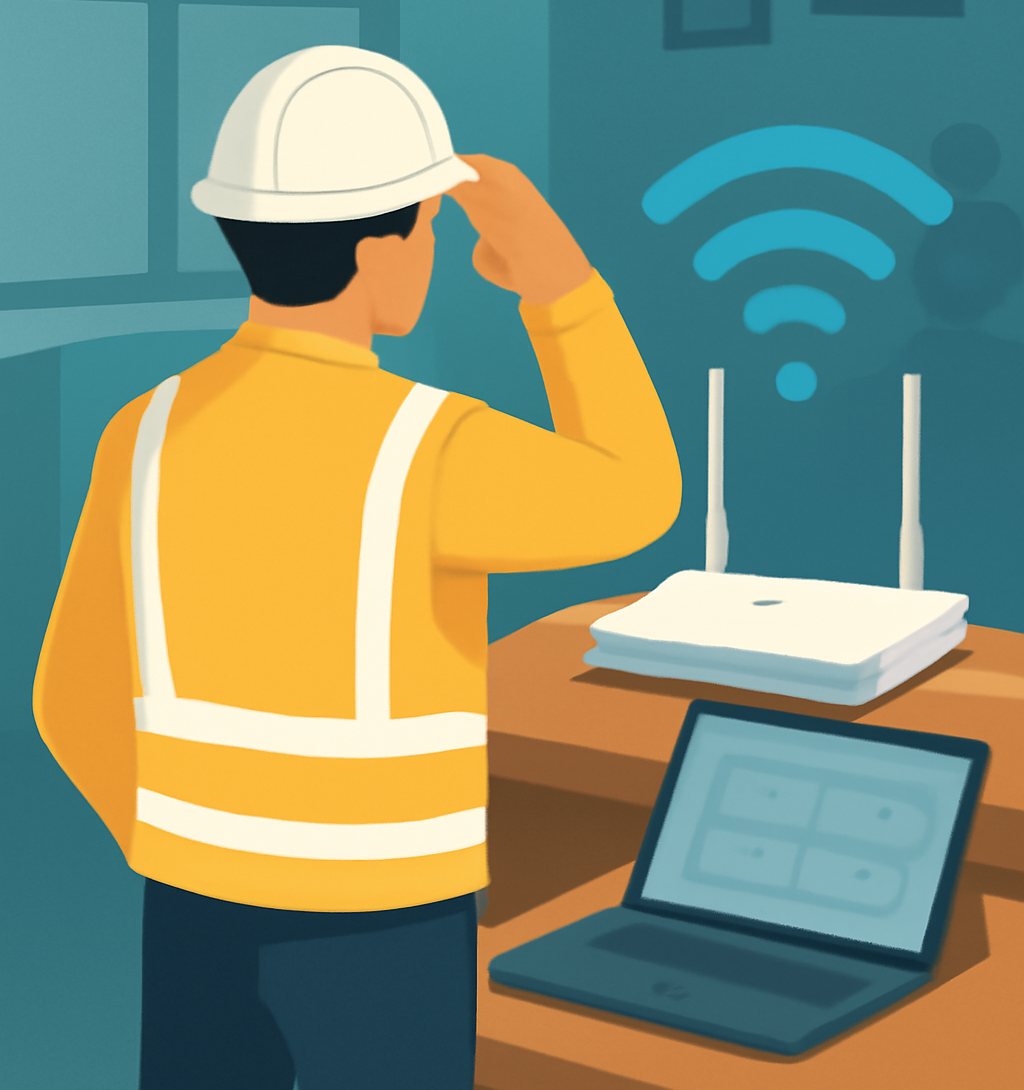The Importance of Wi-Fi Planning: Don’t Let Poor Wi-Fi Hold Your Business Back

The Importance of Wi-Fi Planning: Don’t Let Poor Wi-Fi Hold Your Business Back
We’ve all been there. You’re in the middle of an important meeting, your team is waiting for the latest report, and then… wham. The Wi-Fi drops out. The spinning wheel of death takes over your screen. Everyone stares at their devices, praying for the connection to return, like it’s a lifeline. Spoiler: it’s not.
When you think about it, we rely on Wi-Fi more than we do on some of our closest relationships (don’t tell my mum). It’s the backbone of communication, collaboration, and, let’s face it, office productivity. Yet, far too many businesses overlook the importance of Wi-Fi planning. If you’re still operating on the hope-and-prayer method of connectivity, your business might be in for a rough ride.
So, let’s dive into why solid Wi-Fi planning is not just nice-to-have but essential for your business success.
1. Unreliable Wi-Fi = Unreliable Business
Imagine you’re trying to present to a client via video conference, and the Wi-Fi cuts out mid-sentence. Ouch. Nothing says “I’m unprofessional” quite like the dreaded “buffering” sign.
A poor Wi-Fi setup can cause productivity bottlenecks, delayed communications, and frustration – all of which hurt your business’s reputation. If your team can’t access the cloud-based tools, collaboration apps, or even just simple emails due to slow speeds or outages, it’s costing you money. But, it’s not just about the inconvenience. Downtime = lost opportunities.
2. Scalability: Don’t Wait Until Your Wi-Fi Screams for Help
The Wi-Fi setup you started with may have been perfectly fine when you were a team of 3. But what happens when you’re suddenly 30? The signals get weaker, the congestion increases, and you’re left scrambling to keep up. Trying to “patch” your Wi-Fi like it’s a temporary fix isn’t going to work in the long run.
That’s why it’s vital to plan for growth from day one. Ensure that your Wi-Fi infrastructure is designed to handle increased demand. This could mean investing in more robust equipment, deploying additional access points, or even considering mesh networks for larger spaces.
In short: plan for success, not just survival.
3. Employee Productivity: It’s All About the Speed, Baby
If your employees are constantly fighting with slow internet, the last thing you’re going to see is productivity. Slow speeds lead to procrastination and frustration, and don’t even get me started on “bad Wi-Fi” excuses during performance reviews. (Hint: your IT support team is not interested in hearing them.)
Fast and stable Wi-Fi means your team can move quickly between tasks, access files without delays, and work without interruption. In an office environment, that’s a competitive edge you simply can’t ignore.
4. Security: Not All Wi-Fi is Created Equal
A solid Wi-Fi setup is more than just a speedy one. You want to ensure your network is secure from cyber threats and unauthorised access. An unsecured Wi-Fi network is like leaving the front door of your office wide open with a sign that says, “Come on in, we’ve got snacks.” (Not exactly ideal, right?)
Planning your Wi-Fi with proper encryption protocols (WPA3, anyone?) and secure authentication methods is crucial. Additionally, segmenting your network for different uses, say, guest access vs. internal network—can help prevent potential breaches.
If Wi-Fi isn’t part of your overall cybersecurity strategy, you’re just asking for trouble. And not the fun kind.
5. Cost-Efficiency: A Little Investment Goes a Long Way
Here’s where the magic happens. A well-planned Wi-Fi network is cost-efficient in the long run. By addressing potential issues up front, like coverage gaps, weak signals, or network congestion—you avoid the constant firefighting that comes with poor Wi-Fi. Trust me, your IT team will thank you.
It’s like maintaining your car. Sure, you could skip regular servicing, but then you’re more likely to end up with a breakdown on the motorway. (And no one wants to be “that guy” on the side of the road.)
6. Customisation: Your Business is Unique, So Should Your Wi-Fi
Generic Wi-Fi solutions are for, well, the generic. Your business has its own unique needs. Is your office multi-floor? Do you have large conference rooms? Or a factory floor? A tailored Wi-Fi setup ensures that each space has the coverage and speed it needs, without any unnecessary overhead.
Don’t make the mistake of applying a one-size-fits-all approach. Proper planning and customisation are the keys to a smooth-running, effective network that suits your business like a glove.
7. The Hidden Costs of Poor Wi-Fi: You’re Not Just Paying for Downtime
Sure, downtime is expensive, but did you know poor Wi-Fi also leads to other hidden costs? Think about the employee frustration, decreased morale, and even the potential damage to client relationships. If clients are getting cut off mid-call or can’t upload essential documents, your credibility takes a hit.
Let’s face it, if you’re not investing in solid Wi-Fi planning, you’re effectively throwing money down the drain. You might not feel it immediately, but when it all adds up, it’s like paying for a premium service and getting a dial-up connection.
So, What’s the Solution?
You could keep playing the Wi-Fi lottery, hoping that the next upgrade will somehow magically solve all your problems. Or, you could be proactive and invest in a tailored Wi-Fi solution for your business. That means working with experts (hint: us) who understand network design, scalability, and security inside out.
At Tier 3 Solutions, we specialise in creating bespoke, high-performance Wi-Fi networks that won’t let you down when you need them most. Whether you’re a growing startup or an established enterprise, we’ve got the expertise to help you get your Wi-Fi in shape.
Final Thoughts:
Wi-Fi might not be the most glamorous part of your IT strategy, but it’s undoubtedly one of the most important. A little planning today can save you a lot of headaches (and embarrassing moments) tomorrow. Don’t let poor Wi-Fi hold your business back—plan for success, and stay connected, always.
